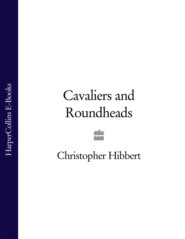По всем вопросам обращайтесь на: info@litportal.ru
(©) 2003-2025.
✖
Disraeli: A Personal History
Настройки чтения
Размер шрифта
Высота строк
Поля
Disraeli did not tell his sister where he was going and, when she found out, she was much distressed. ‘My dearest, why have you forgotten me?’ she wrote to him, care of the post office at Southend. ‘Will you come back next Saturday?’ ‘My dearest love,’ she wrote again the following day, ‘No letter again this morning. After you left me so unhappy I was sure you would not have failed to have kept your promise of writing to me if there was not something amiss. Pray send me a single line. We are so dull here.’ The next day Disraeli did reply to her letters, giving the excuse for not having been in touch with her before that he had been writing hard.
He certainly had need to earn money from his writing, to create, as he put it, ‘something great & lasting’ which would be profitable and, although he had by now dropped Benjamin Austen in his pursuit of more rewarding, distinguished and entertaining friends, he wrote to him asking for a further loan so that he could avoid ‘the cruelty’ of having his ‘power of creation marred at such a moment’.
Austen’s patience had worn too thin for this. ‘I am sorry to say, my dear Disraeli,’ he replied huffily, refusing the request, ‘that you have tried me too often.’ He relented, however, after having received an ingratiating letter from Disraeli, who assured him that there was ‘not a person in the world’ who would more readily hazard everything he valued to serve Austen and his wife. ‘I was so circumstanced last year that my acquaintance I utterly rejected…[My] relations I never went near, and I disregarded an entrance which offered itself to me to the most brilliant society of the metropolis.’ His debts, he added falsely, were ‘entirely and altogether electioneering debts’. Friends, he continued, were ‘not made every day…It is in youth only that these connections are formed, and yours was my last. Had the friend [William Meredith] who in his gloomier hours never found me wanting, been spared to me, I should not have been forced to write this humiliating letter! Farewell!’
(#litres_trial_promo)
Mollified by this abject and misleading letter, Austen lent Disraeli £1,200 at 21/2; per cent. This, however, did not go far to alleviate his problems; and his financial affairs grew ever more complicated as his solicitor, Philip Rose, endeavoured to satisfy or, at the least, to quieten his numerous creditors by all manner of financial expedients. Loans were borrowed from such generous friends as D’Orsay, with whom he fell out when they were not repaid, while money was, so it seems, extracted from Sir Francis Sykes, whose mental state was becoming increasingly confused.
Struggling to finish Venetia, a novel based on the life of Byron, Disraeli told William Pyne, a rich solicitor, that he ‘found it difficult to command the Muse amidst all these vexations’. But he did contrive to command it, to finish Henrietta Temple, a novel inspired by his affair with Lady Sykes, which was published by Henry Colburn in 1837, the same year as Venetia. He also managed to survive all threats to have him incarcerated in a debtors’ prison, though coming close to arrest on more than one occasion and once at High Wycombe being driven to hide in a well to evade the sheriff’s officer.
(#litres_trial_promo)
‘I am hourly, nay, every minute, annoyed by the coarse vulgarity of the one and the hypocrisy, the low cunning of the other,’ Henrietta Sykes wrote to Disraeli of the Boltons following his return to Bradenham, after he had spent a month at Southend. ‘I went into your room today, arranged your wardrobe, kissed the Bed, swallowed my tears and behaved as a heroine…Today’s letter was the kindest, dearest – write me many such.’
(#litres_trial_promo)
It was not long before he had no need to do so, as Sir Francis went abroad for over two years; and Disraeli, by then on the best of terms with him, went with him to Harwich to see him off. They were now agreed about the perfidy of the Boltons: he was, in Sir Francis’s words, a ‘dreadful’ person; she filled him with ‘disgust’. Fortunately, she went to live alone in Rotterdam where she was, Sarah D’Israeli heard, the ‘object of much scandal’.
So, indeed, was Disraeli, who now spent much of his time, nights as well as days, in the Sykes’s house. He wrote in his diary, ‘What a happy or rather amusing society H[enrietta] and myself commanded this year. What Delicious little suppers after the Opera.’
(#litres_trial_promo)
By now, however, Disraeli’s passion for Lady Sykes had begun to cool. He had grown tired of her cloying possessiveness, of receiving such letters as:
I swear I suffer the torments of the damned when you are away and although there is nothing I would not sacrifice to give you a moment’s enjoyment I cannot bear that your amusement should spring from any other source than myself…Are you angry, love, at my selfishness? You never answer questions and I sometimes think I bore you by writing…It appears an age since we parted and I would that we were never separated for a moment. Is it vain to suppose you would love me better and better the longer we were together?…I love you even to madness.
The affair lingered on, and continued to be the subject of scandalous stories, not only about Disraeli and Lady Sykes, but also about Henrietta and Lord Lyndhurst, the good-natured, indiscreet, gossiping and, to women, extremely attractive American-born former and future Lord Chancellor, with whom Disraeli – who described him as looking like ‘a high-bred falcon’ – was on the most friendly terms. Indeed, it was suggested that, as a means of forwarding his political career, Disraeli encouraged Lady Sykes to have an affair with Lyndhurst who, though contentedly married to a Jewish wife, had not the least objection. Nor, indeed, had Lady Sykes, who told Disraeli that she could make Lyndhurst do as she liked, ‘so whatever arrangement you think best tell me & and I will perform it’.
I can well remember the scandal in the country at this connexion [wrote Sir Philip Rose], and especially at the visit of Lady Sykes to Bradenham accompanied by Lord L[yndhurst] and the indignation aroused in the neighbourhood at D. having introduced his reputed mistress and her Paramour to his Home and made them the associates of his Sister as well as of his father and mother. It did him much harm at the time and to show how unfavourable impressions linger long afterwards I have had it thrown in my teeth by influential county people within very recent years [the late 1870s and early 1880s] that this was an act which would never be forgotten and which all D’s subsequent career could never obliterate.
(#litres_trial_promo)
(#litres_trial_promo)
In the summer of 1834, Lady Sykes received what she called a ‘disagreeable’ letter from her sister warning her that she would be socially ostracised if her relationship with Disraeli continued. She advised her to go to Norfolk to stay with their father at Martham Hall. Lady Sykes declined to do this; but at last she did agree to go abroad with Lyndhurst and some members of his family. She ‘liked L. very much,’ she told Disraeli. ‘He is very good natured’ but ‘only thought of driving away care’. He was also ‘a perfect fool where women are concerned’.
(#litres_trial_promo)
Disraeli was asked to go abroad with them but he declined the invitation.
It was not long before Lady Sykes had found another lover in the attractive, good-looking, gregarious Irish painter, Charles Dickens’s friend, Daniel Maclise. But when she and Maclise were discovered in bed together, Sir Francis threatened proceedings for what was known as ‘criminal conversation’ and inserted a paragraph in the Morning Chronicle giving notice that ‘HENRIETTA SYKES the wife of me SIR FRANCIS SYKES Baronet hath committed ADULTERY with DANIEL MACLISE…Portrait and Picture Painter (with whom she was found in bed at my house)…’
(#litres_trial_promo) Proceedings were not pursued, however, because of the other scandalous matters which would inevitably have come to light, including a story that £2,000, which had been paid to Lady Sykes in excess of her allowance, had somehow ‘found its way into Disraeli’s pocket’.
(#litres_trial_promo)
Lady Sykes was disgraced and no longer seen in polite society in London. Disraeli, loyal to past friends, wrote her a letter of sympathy, to which she replied: ‘I regret that I should have awakened feelings of bygone years…Whatever may be my present sufferings I have brought them on myself & no one can judge more harshly of my conduct for the last 2 months than I…I thank God no one can reproach me of anything but romantic folly…I cannot think for I am distracted & feel as if there were no resting place on earth for me.’
Her life in society was over, and in May 1846 the death of the widow of Sir Francis Sykes was only briefly noticed in the newspapers.
What is apparently the last letter she wrote to Disraeli was very different from those she had written in the torridity of their affair:
What can I say sufficient to convey to you my deep admiration of your book [Henrietta Temple: A Love Story] and the extreme pleasure I felt in reading it. You know I am not very eloquent in expressing my feelings, therefore I must fail to convey to you a tythe part of the extreme gratification I have in your brilliant success…It is possible that I may go abroad with Francis – he is perfectly recovered and tolerably kind to me.
(#litres_trial_promo)
9 THE REFORMING TORY (#ulink_4f294d52-a349-51ba-a562-89055f5ca5be)
‘I am considered a great popular orator’
THROUGHOUT THE TIME of his affair with Lady Sykes, Disraeli had lost no opportunity of seeking the approval of men of political standing and influence, such as the friendly Lord Lyndhurst.
(#litres_trial_promo)
I dined on Saturday en famille with Lyndhurst [he told his sister on 4 November 1834]. A more amiable and agreeable family I never met. The eldest daughter is just like her mother and, although only thirteen, rules everything and everybody – a most astounding little woman…I saw Chandos [Lord Chandos, eldest son of the Duke of Buckingham] today, and had a long conversation with him on politics. He has no head, but I flatter myself I opened his mind a little…D’Orsay has taken my portrait.
(#litres_trial_promo)
As well as with Lyndhurst and Chandos, Disraeli was closely in touch and in correspondence with Lord Durham, whom he asked to use his influence to persuade ‘young Hobhouse [Sir John Hobhouse, later Lord Broughton]’ to resign from the political contest in his favour. ‘My dear Lord,’ he wrote, ‘my affairs are black; therefore, remember me and serve me if you can. My principles you are acquainted with; as for my other qualifications, I am considered a great popular orator.’
(#litres_trial_promo)
Lord Durham, however, replied that he was not in a position to help: he did not know Hobhouse well enough to intervene. But these were times which required the ‘presence in Parliament of every true and honest politician’ and he trusted and hoped, therefore, that Disraeli would find his way there yet. ‘If an occasion offers when I can forward your views,’ he added, ‘I shall not fail to do so.’
(#litres_trial_promo)
These were certainly times of great political excitement; and, as Bulwer told Isaac D’Israeli, his son, Benjamin, was ‘restless and ambitious as usual’, but ‘such dispositions always carve out their way’.
It was a lively season that winter of 1834! [Disraeli wrote in his novel, Coningsby] What hopes, what fears and what bets!…People sprang up like mushrooms; town suddenly became full. Everybody who had been in office and everybody who wished to be in office…were alike visible. All of course by mere accident; one might meet the same men every day for a month, who were only ‘passing through town’…The town, through November, was in a state of excitement; clubs crowded, not only morning rooms but halls and staircases swarming with members eager to give and to receive rumours equally vain; streets lined with cabs and chariots, grooms and horses…
But, after all, who were to form the government, and what was the government to be? Was it to be a Tory government, or an Enlightenment-Spirit-of-the-Age…Liberal-Moderate-Reform government?…
Great questions these, but unfortunately there was nobody to answer them. They tried the Duke [of Wellington]; but nothing could be pumped out of him. All that he knew, which he told in his curt, husky manner, was, that he had to carry on the King’s government…‘This can’t go on much longer,’ said Taper to Tadpole [typical party wire-pullers]…At last he [Sir Robert Peel] came; the great man in a great position, summoned from Rome [where he had been on holiday] to govern England. The very day that he arrived he had his audience with the King.
In the subsequent election campaign of 1835, Disraeli decided to stand once more for High Wycombe and to do so as a Radical-leaning Tory, sworn enemy of the Whigs. ‘It is not enough to say of Mr Disraeli’, ran a letter in the Bucks Gazette, ‘that he delivered himself with his usual ability [on the day of nomination]. The difficulties that he had to encounter were most ably met and judiciously avoided; to steer between the shoals of Toryism on the one hand and the quicksands of Radicalism on the other (for he was supported by the two parties) required the utmost skill and well did he acquit himself.’
‘I stand astonishingly well at Wycombe,’ Disraeli himself assured Benjamin Austen, ‘and may beat the Colonel [Charles Grey] yet. Had I the money, I might canter over the County, for my popularity is irresistible.’
(#litres_trial_promo) It was, however, not irresistible enough: he received 128 votes as against 147 for Charles Grey and 289 for the Hon. Robert J. Smith.
‘I am not at all disheartened,’ Disraeli protested. ‘I do not in any way feel like a defeated man. Perhaps it is because I am used to it. I will say of myself like the famous Italian general, who, being asked in his old age why he was always victorious, replied, it was because he had always been beaten in his youth.’
(#litres_trial_promo)
I have fought our battle and have lost it; by a majority of fourteen, [he wrote to the Duke of Wellington in a less jaunty, even servile mood]. Had I been supported as I wished, the result was certain as I anticipated. Had Lord Carrington exerted himself in the slightest degree in my favour, I must have been returned. But he certainly maintained a neutrality, a neutrality so strict that it amounted to a blockade…It is some consolation to me, even at this moment, that I have at least struggled to support your Grace. I am now a cipher; but if the devotion of my energies to your cause, in and out, can ever avail you, your Grace may count upon me, who seeks no greater satisfaction than that of serving a really great man.
(#litres_trial_promo)









